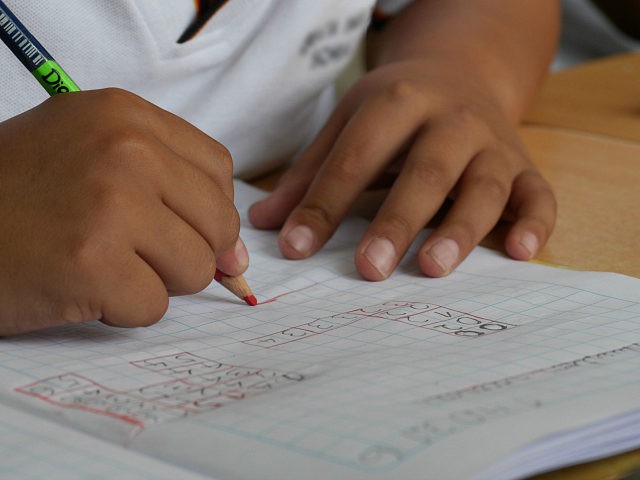Sen. Rand Paul (R-KY) and Rep. Chip Roy (R-TX) have introduced companion pieces of legislation that would allow federal education funds to follow individual children to their chosen school or learning environment.
In early August, Paul — a member of the Senate committee that oversees education — and this week, Roy — in the U.S. House — launched the Support Children Having Open Opportunities for Learning (SCHOOL) Act.
“The proposal mandates that money follows the child, not the system, “whether learning in person or remotely, to the public school, private school, or home school they attend.” https://t.co/7nFVB0BLUL
— Senator Rand Paul (@RandPaul) August 18, 2020
The bills are S. 4432, “a bill to allow Federal funds appropriated for kindergarten through grade 12 education to follow the student,” and its companion bill, H.R. 8054.
As Deborah Simmons wrote at the Washington Times, the SCHOOL Act assures the money “follows the child, not the system.”
Both lawmakers say the difficulties associated with the coronavirus pandemic have made it imperative to allow federal education dollars to be returned to families to allow them to make the best choice of education venue for their children.
“The SCHOOL Act eases one of this pandemic’s most crushing burdens, returning more of families’ own money to them so they have greater flexibility to provide the best possible education for their kids and cover the costs that come with it,” Paul said in a statement. “I am proud to be joined across the Capitol in this effort by Representative Roy as momentum builds for this much-needed legislation.”
Earlier I introduced the SCHOOL Act to provide parents and students with much-needed flexibility and options regarding K-12 education. I'm proud to be joined in this effort by @RepChipRoy as momentum builds for this much-needed legislation. Learn more: https://t.co/lWrdkYL0lj pic.twitter.com/FbFmoigPsY
— Senator Rand Paul (@RandPaul) August 18, 2020
Similarly, Roy said, “As our nation battles the coronavirus, we should not force parents into the untenable position of having to balance providing for their families while educating their children.”
“The SCHOOL Act will ensure parents are able to make the best decision to fit the educational needs of their children,” he continued.
According to a press release from Paul’s office, the SCHOOL Act would allow federal education dollars for K-12 eligible students to follow the child to the family’s choice of school, whether that be in-person instruction, remote learning, public school, private school, or home school.
The funds could be used for tuition, curriculum materials, technology, tutoring, special education needs, extracurricular activities, or classes outside the home.
Today, I am introducing H.R.8054, the Support Children Having Open Opportunities for Learning (SCHOOL) Act. The SCHOOL Act is a commonsense measure designed to protect students and ensure education continuity as we battle this virus. https://t.co/HdY4SjzHIS
— Rep. Chip Roy (@RepChipRoy) August 17, 2020
“As families face the reality of hybrid learning or a completely virtual school year, students, especially those with disabilities, need a choice in education and the tools to succeed no matter where they are learning,” the statement said.
The SCHOOL Act would amend the Elementary and Secondary Education Act (ESEA) of 1965 and the Individuals with Disabilities Education Act (IDEA) to allow particular funds authorized by these laws to follow the child, regardless of the choice of school or learning environment.
According to the press statement, the SCHOOL Act also ensures that each child receives the same amount of money, regardless of the choice of school, and that children who accept the federal education funds may still participate in federally funded school food programs.
The SCHOOL Act also would protect non-public schools from federal and state control.

COMMENTS
Please let us know if you're having issues with commenting.